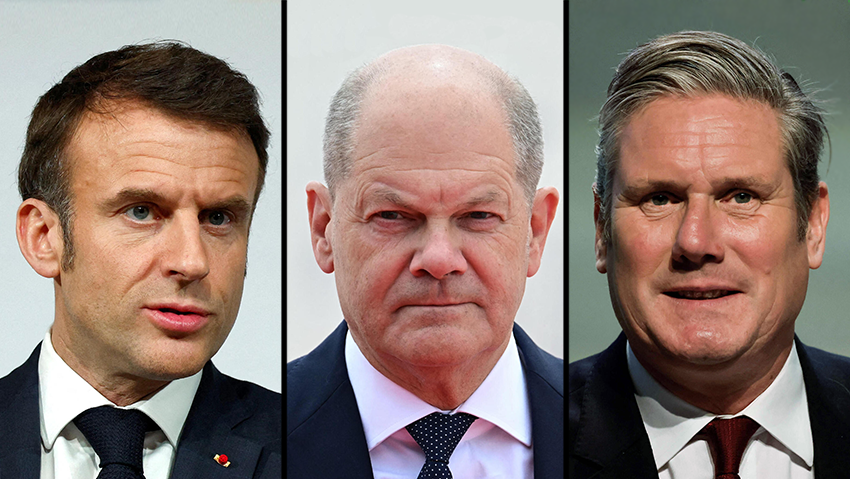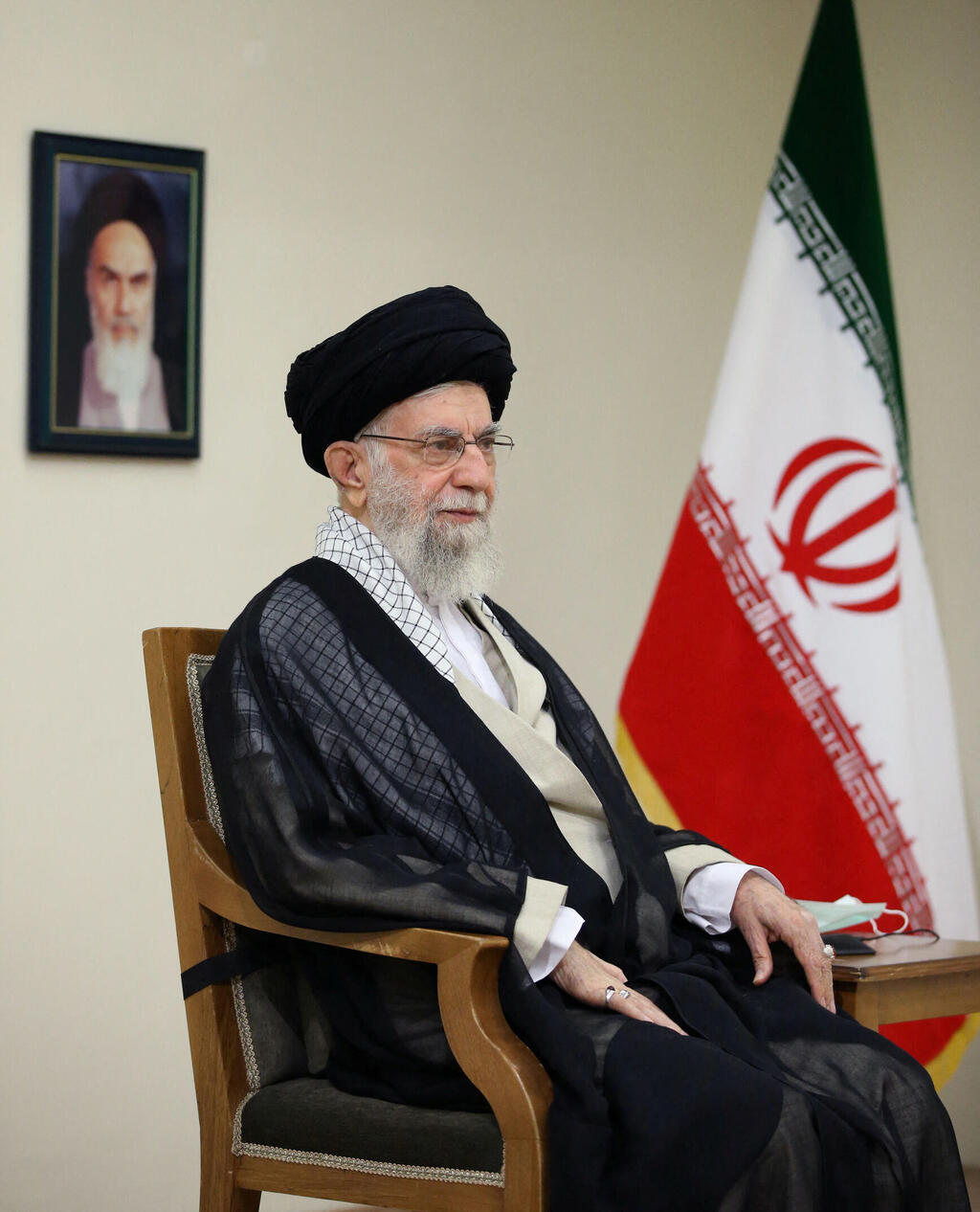Getting your Trinity Audio player ready...
It's been two weeks since the assassination of senior Hezbollah official Fuad Shukr, hours before the assassination of Ismail Haniyeh in Tehran, but the promised retaliation from Iran and Hezbollah is nowhere to be found. An Iranian official recently told the Financial Times that his country launched a psychological warfare campaign against Israel.
3 View gallery


Iran's Supreme Leader Ali Khamenei and Ismail Haniyeh
(Photo: REUTERS/Mohamed Azakir/File Photo צילום: Alex Kent / GETTY IMAGES)
The Iranian official had said there could be an attack against Israel on Monday. "There may be no attack at all, or there could be one tonight," he said. "Waiting for death is more difficult than death itself." He continued: "Iran has launched a psychological warfare campaign to keep Israel’s military, security, and logistical capabilities on edge, denying residents of the occupied territories any sense of calm."
Israeli assessments estimate that Iran will respond directly from its territory and the regional coalition which intercepted Iranian projectiles in April is preparing for another round of drones and missiles by Iran and Hezbollah, possibly at sensitive and strategic sites. Either way, Israeli officials say that the Iranian Revolutionary Guard Corps and Hezbollah will focus on military targets.
Despite the record-high security tensions, Prime Minister Benjamin Netanyahu has not convened the Security Cabinet nor has he held consultations with Defense Minister Yoav Gallant, with whom he clashed most recently on Monday.
IDF Spokesman Rear Admiral Daniel Hagari issued a statement on Monday amid fears of an Iranian retaliation. "We are prepared at the utmost level and ready to intercept any threat. The Home Front Command's guidelines remain unchanged and we will update them if any change arises. The IDF is committed to the security of the northern residents and we will get you back safely to your homes. We will update the public as soon as possible with any updates."
The U.S. has bolstered its military presence in the region with its upcoming arrival of the Lincoln aircraft carrier which will join the Roosevelt near the Persian Gulf. American officials stated that it remains unclear how long the two aircraft carriers will be together, and that in any case the Lincoln is now in the South China Sea and will arrive in the region in about two weeks.
"We are deeply concerned by the heightened tensions in the region and united in our commitment to de-escalation and regional stability. In this context, and in particular, we call on Iran and its allies to refrain from attacks that would further escalate regional tensions and jeopardize the opportunity to agree a cease-fire and the release of hostages," wrote French President Emmanuel Macron, German Chancellor Olaf Scholz and U.K. Prime Minister Keir Starmer.
3 View gallery


Joint statement by Germany, UK and France's leaders
(Photo: MIGUEL MEDINA / AFP, GONZALO FUENTES / POOL / AFP)
Starmer reportedly spoke with Iranian President Masoud Pezeshkian, asking him to do everything in his power to prevent an escalation. However, the Iranian president is not the regime's decision maker and the last word belongs to the Supreme Leader of Iran. According to reports, the president wants to avoid a major attack.
Despite heavy international pressure, Israel estimates that Iran will still respond while Iranian officials called for caution, aiming to respond in a way that would prevent an all-out regional war. A Lebanese official, who is considered close to Hezbollah, said that Iran and its allies are "treading carefully." A similar message was voiced by an Iraqi member of parliament who is close to the pro-Iranian militias in the country: "We were told that there is going to be a limited response."
Lebanese officials close to Hezbollah recently said that Iran expressed concerns over a harsh response that would prompt Israel and the U.S. to attack its nuclear facilities, as an excuse to neutralize Iran's nuclear deterrent, according to the report. When asked if Israel would launch a pre-emptive strike against Iran, the IDF spokesperson did not rule out any action.
Foreign ambassadors in Israel are staying put
Despite the tensions and the high alert in Israel, most foreign ambassadors in the country decided to stay in Israel, despite the fear of escalation. The only embassy that has evacuated family members from Israel is Canada, and many of them are on summer vacation anyway.
Officials at the Foreign Ministry said that the embassies were generally unafraid of the situation and did not request any special instructions. "We are in close contact with them. They look at us. When we are stressed, they will also be stressed," said the Foreign Ministry. Like many other ambassadors, the German Ambassador Steffen Seibert does not intend to leave Israel.




